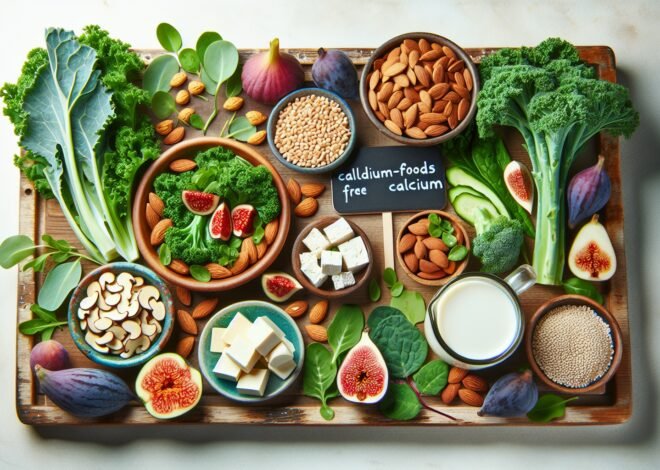
How to Use Turmeric for Its Anti-Inflammatory Benefits
Turmeric for inflammation is a powerful natural remedy backed by both ancient traditions and modern science. Studies highlight its active compound, curcumin, for reducing inflammatory markers and soothing conditions like arthritis. With its popularity on the rise, understanding how to effectively use turmeric can optimize its health benefits. This post will guide you through various methods, from supplements to dietary inclusions, to maximize turmeric’s anti-inflammatory properties. Stay with us to learn simple yet impactful ways to incorporate this potent spice into your daily routine for better health outcomes.
Understanding Turmeric’s Anti-Inflammatory Properties
Turmeric, a golden spice, is celebrated for its anti-inflammatory properties. Its therapeutic potential extends beyond culinary uses to holistic health benefits. The secret lies in its active compounds, which offer relief from inflammation on multiple fronts. Let’s delve into the science that makes turmeric a powerhouse in fighting inflammation.
The Active Compound Curcumin and Its Benefits
Curcumin is the active compound in turmeric responsible for its vibrant color and health benefits. This polyphenol has powerful anti-inflammatory and antioxidant properties. Curcumin works by blocking molecules that travel to the cell nuclei and turn on genes related to inflammation. By doing so, it prevents the inflammatory processes that can lead to chronic conditions like arthritis and heart disease.
The benefits of curcumin extend to improving brain function, reducing the risk of brain diseases, and lowering the risk of heart disease. It also plays a role in combating degenerative processes related to aging. To maximize these benefits, it’s crucial to understand how curcumin interacts with the body. For instance, curcumin is poorly absorbed into the bloodstream. Therefore, pairing it with black pepper, which contains piperine, enhances its absorption significantly.
How Turmeric Reduces Inflammation at the Cellular Level
Turmeric’s ability to reduce inflammation starts at the cellular level. Inflammation is a complex biological response to harmful stimuli, and curcumin can modulate this response. It influences several pathways involved in the inflammatory process, including the suppression of nuclear factor kappa B (NF-kB). NF-kB is a protein complex that controls DNA transcription and is linked to inflammation.
Curcumin also inhibits other molecules like cytokines and enzymes that contribute to the inflammatory process. By modulating these pathways, turmeric reduces the body’s inflammatory response, providing relief from pain and swelling. This cellular action is why turmeric is not only effective in acute inflammation but has potential long-term benefits for chronic inflammatory conditions.
Scientific Studies Supporting Turmeric’s Efficacy
Numerous scientific studies support turmeric’s efficacy in reducing inflammation. Research has shown that curcumin can be as effective as some anti-inflammatory drugs, but without the side effects. A study published in the “Journal of Alternative and Complementary Medicine” found that curcumin was as effective as ibuprofen in managing knee osteoarthritis pain.
Another study highlighted in the “Annals of Internal Medicine” demonstrated turmeric’s potential in reducing inflammation markers in the blood. These studies indicate the potential of turmeric as a safe alternative to pharmaceutical options for inflammation relief. However, dosage and bioavailability remain critical factors for achieving these benefits.
Effective Ways to Use Turmeric for Inflammation Relief
Using turmeric for inflammation relief can be both simple and versatile. From spicing up your meals to brewing a warm cup of turmeric tea, the options are numerous. Understanding the best ways to incorporate this golden spice into your daily routine can help maximize its benefits and provide sustained inflammation relief.
Cooking with Turmeric: Recipes and Tips
Incorporating turmeric into your cooking can be a flavorful way to enjoy its health benefits. This spice complements a variety of dishes, enhancing both flavor and nutrition. To kickstart your turmeric-infused culinary journey, consider these tips and recipes:
- Golden Milk: Combine milk, turmeric, black pepper, and honey to make a soothing beverage.
- Turmeric Rice: Add a spoonful of turmeric to your rice cooking process to create a vibrant and flavorful dish.
- Curries and Stews: Use turmeric as a base spice in curries and stews for a warming, anti-inflammatory meal.
When cooking with turmeric, remember to add black pepper to enhance curcumin absorption. Additionally, using healthy fats like coconut oil or olive oil can further aid in maximizing turmeric’s bioavailability.
Turmeric Supplements: Dosage and Forms
For those looking to bolster their turmeric intake beyond diet, supplements are a convenient option. Turmeric supplements are available in various forms, including capsules, tablets, and powders. When choosing a supplement, it’s important to consider bioavailability. Look for products containing piperine or those formulated to enhance absorption.
The typical recommended dosage for turmeric supplements ranges from 500 to 2000 milligrams of curcumin per day. However, it’s essential to consult with a healthcare provider to determine the appropriate dosage based on individual health needs and conditions.
Preparing a Turmeric Tea for Optimal Benefits
Turmeric tea, or “golden tea,” is a popular method for consuming turmeric. This warming beverage combines turmeric with other beneficial ingredients to provide a soothing experience. To prepare turmeric tea:
- Boil water and add a teaspoon of turmeric powder.
- Include a pinch of black pepper to improve absorption.
- Add honey and lemon for taste and additional health benefits.
Drinking turmeric tea daily can help reduce inflammation and provide a comforting routine. Experiment with adding other spices like ginger and cinnamon for an extra anti-inflammatory boost.
Best Practices and Precautions When Using Turmeric
While turmeric offers numerous health benefits, it’s important to use it wisely. Understanding the best practices and precautions ensures safe and effective use. Knowing the potential side effects, selecting quality products, and combining turmeric with other remedies can enhance its benefits.
Potential Side Effects and Contraindications
Although turmeric is generally safe, excessive consumption can lead to side effects. Some individuals may experience digestive issues such as stomach upset, nausea, or diarrhea. It’s crucial to adhere to recommended dosages and monitor your body’s response.
Turmeric may interact with certain medications, including blood thinners and diabetes medication. Pregnant or breastfeeding women should consult healthcare providers before using turmeric supplements. Understanding these contraindications helps prevent adverse reactions and ensures safe usage.
Ensuring Quality: Choosing the Right Turmeric Products
Choosing high-quality turmeric products is vital for maximizing benefits. Look for products with reputable certification, ensuring they are free from contaminants and fillers. Organic turmeric is typically the best choice, as it minimizes exposure to pesticides and chemicals.
When selecting supplements, consider those with enhanced bioavailability, such as those containing piperine. Checking for third-party testing and certifications can also provide assurance of product quality and potency.
Combining Turmeric with Other Anti-Inflammatory Foods and Remedies
For amplified anti-inflammatory effects, consider combining turmeric with other foods and remedies. Pairing turmeric with foods rich in omega-3 fatty acids, such as salmon or flaxseeds, can enhance its inflammation-fighting properties.
Integrate turmeric with a balanced diet and lifestyle that includes regular exercise and stress management. Combining these elements creates a holistic approach to managing inflammation and optimizing health.
Embracing these practices ensures that you harness the full potential of turmeric while maintaining safety and effectiveness. This golden spice, with its wealth of benefits, can be a powerful ally in promoting overall well-being.
Conclusion
Turmeric contains curcumin, a compound known for its anti-inflammatory properties. It has been used in traditional medicine to reduce inflammation and pain. Curcumin can inhibit the molecules that trigger inflammation, potentially benefiting conditions like arthritis. The absorption of curcumin into the bloodstream is limited, so it is often taken with black pepper or fats to enhance bioavailability. Some studies suggest turmeric supplements can help manage inflammation, but further research is needed for definitive conclusions.
FAQ
What are the benefits of using turmeric for inflammation relief?
Turmeric is renowned for its anti-inflammatory properties, helping alleviate pain and swelling. Curcumin, its active compound, plays a key role in reducing inflammation, making it a popular choice for those suffering from chronic inflammatory diseases.
How does turmeric help reduce inflammatory conditions?
Curcumin in turmeric inhibits inflammatory pathways in the body. It suppresses molecules like cytokines and enzymes that trigger inflammation, providing relief in conditions like arthritis and other inflammatory disorders.
What is the recommended dosage of turmeric for treating inflammation?
A common dosage ranges from 500 to 2,000 mg of turmeric per day. Consultation with a healthcare provider is essential to determine the right amount, ensuring safety and effectiveness for your specific needs.
Are there any side effects of taking turmeric for inflammation management?
While turmeric is generally safe, high doses may cause digestive issues like stomach upset or diarrhea. People with gallbladder problems or those on blood-thinning medication should exercise caution.
Can turmeric supplements effectively reduce chronic inflammation?
Turmeric supplements are known to help manage chronic inflammation. Consistent use, especially with piperine for enhanced absorption, can lead to noticeable improvements over time.
How long does it take for turmeric to show results for inflammation control?
The effects of turmeric can vary; some individuals notice improvements within a few weeks. Long-term use often yields the best results, but it requires patience and consistency.











